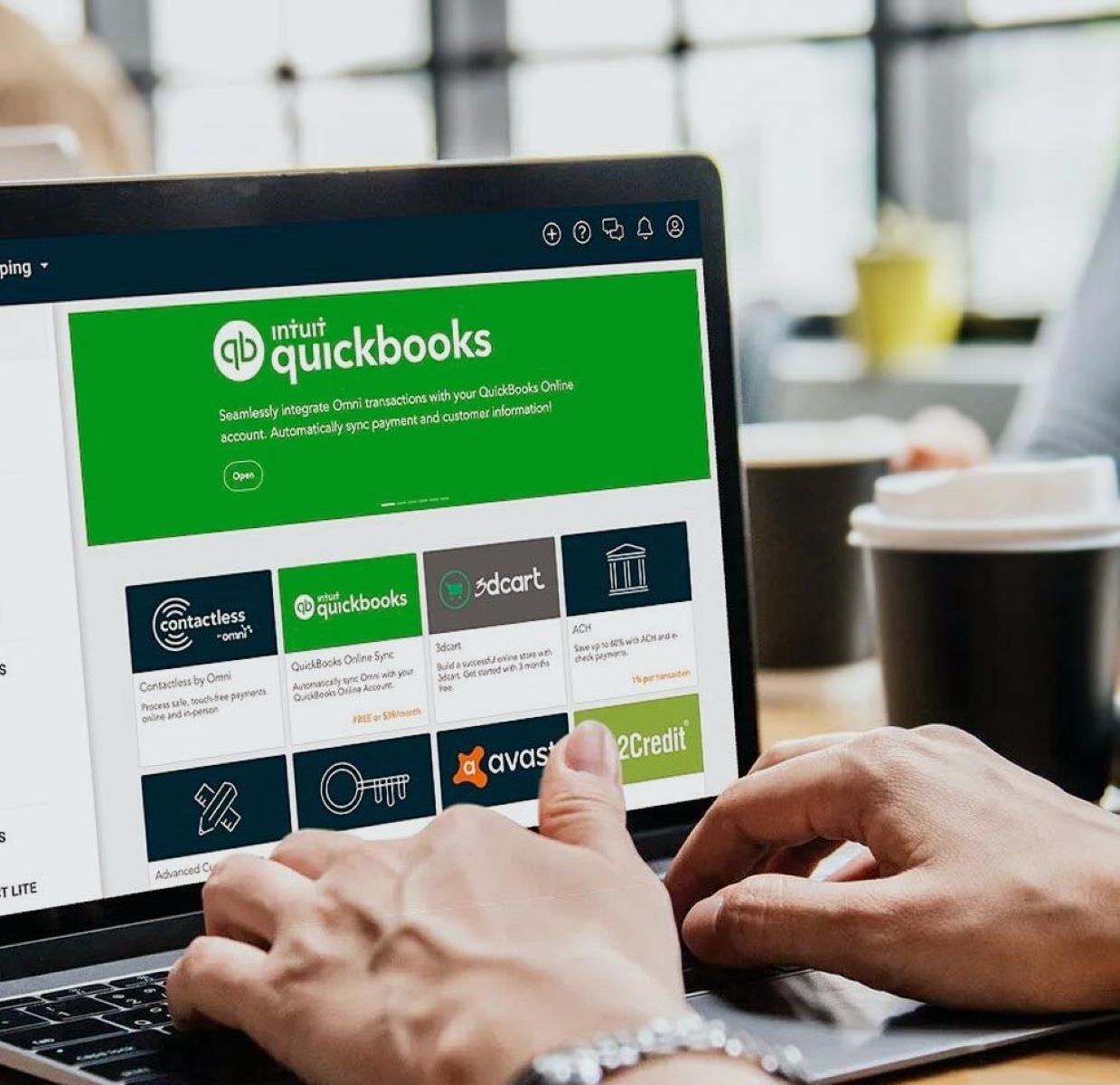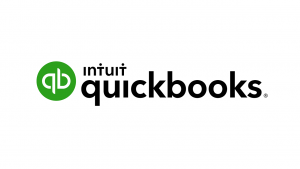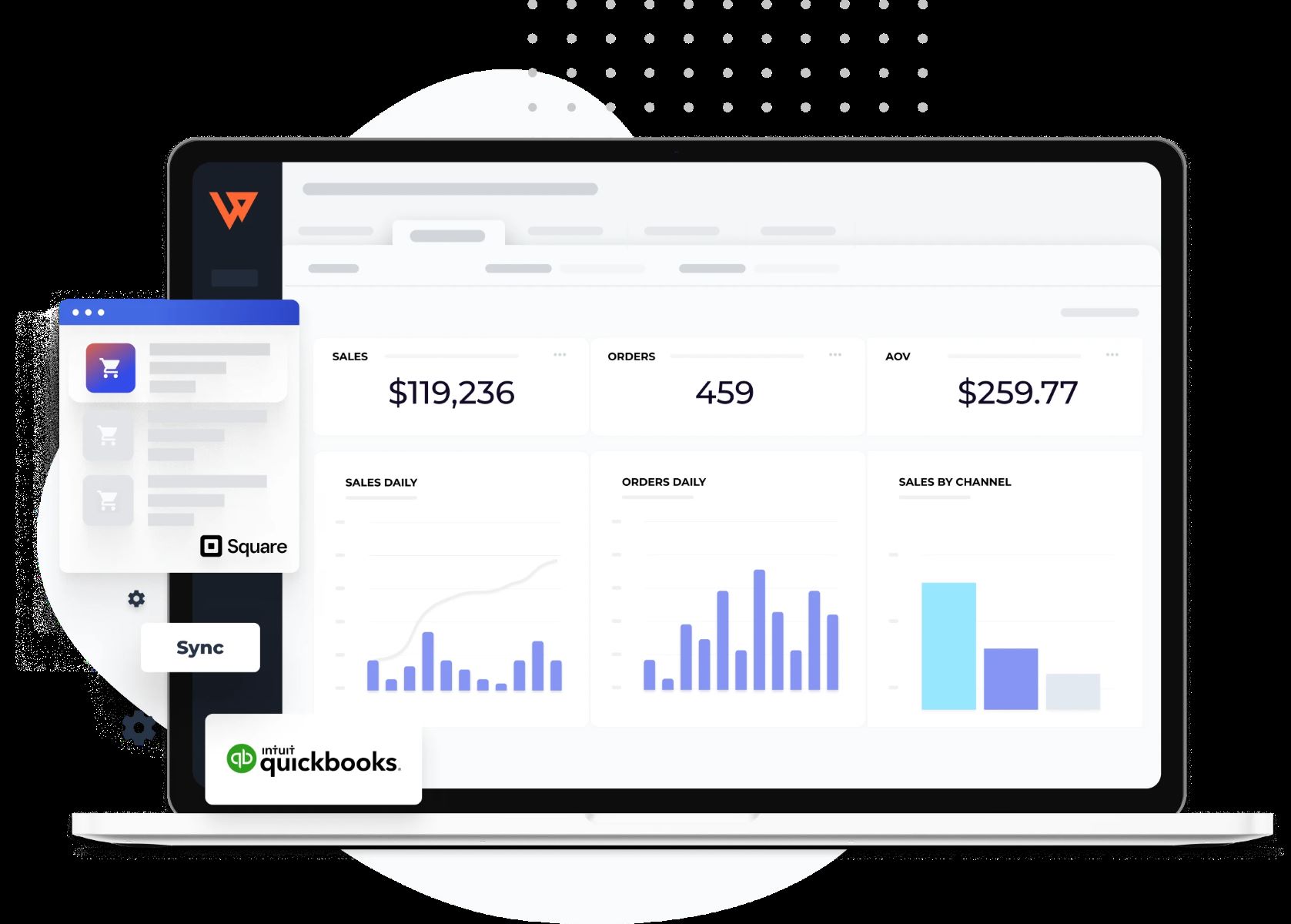Introduction
Welcome to the world of Quickbooks, where you can streamline your accounting processes and stay organized with ease. Whether you’re a small business owner, an accountant, or someone interested in learning accounting software, Quickbooks is a powerful tool that can help you manage your financial tasks efficiently.
While Quickbooks offers paid courses and certifications, not everyone may have the budget to invest in these resources. However, there are numerous free online resources available that can help you learn Quickbooks without breaking the bank.
In this article, we’ll explore various ways you can learn Quickbooks for free online. From tutorials and forums to blogs and communities, we’ll cover the breadth of resources available to help you become proficient in using Quickbooks.
Whether you’re a beginner or looking to enhance your existing Quickbooks skills, these free resources will provide you with the knowledge and expertise you need to excel. So, let’s dive in and discover the avenues that can pave your path towards Quickbooks mastery.
Finding the Right Online Resources
When it comes to learning Quickbooks for free online, the first step is finding the right resources that align with your learning style and needs. There are various platforms and websites that offer tutorials, courses, and interactive communities to help you on your Quickbooks journey. Here are some ways you can find the right online resources:
1. Quickbooks Website: Start your search on the official Quickbooks website. It offers a wealth of free resources, including guides, articles, and tutorials on using Quickbooks for different purposes. Explore their documentation and help sections, where you can find step-by-step instructions and video tutorials.
2. YouTube Channels: YouTube is a treasure trove of educational content, and learning Quickbooks is no exception. Many experienced Quickbooks users and educators share helpful tutorials and guides on their channels. Search for reputable channels that offer comprehensive Quickbooks tutorials, such as “Quickbooks Training” or “QBOchat.”
3. Online Learning Platforms: Websites like Udemy, Coursera, and LinkedIn Learning offer a variety of free Quickbooks courses. Look for courses with high ratings and positive reviews to ensure the quality of the content. These platforms often provide video lectures, quizzes, and assignments to help you grasp Quickbooks concepts effectively.
4. Quickbooks Community: Joining Quickbooks online communities can be a great way to connect with fellow learners and experts. Quickbooks Community is a platform where you can ask questions, share experiences, and learn from others. Engage in discussions, browse through previous posts, and take advantage of the collective knowledge of the community.
Remember to evaluate the credibility and relevance of the resources before diving in. Look for up-to-date information, user reviews, and recommendations to ensure you’re learning from trusted sources. Additionally, consider your preferred learning style – whether it’s video tutorials, written guides, interactive courses, or a combination of these – to find the resources that best suit your needs.
Understanding the Basics of Quickbooks
Before delving into the advanced features of Quickbooks, it’s essential to have a solid understanding of the basics. This foundation will help you navigate the software with confidence and efficiently manage your financial tasks. Here are some key areas to focus on when learning the basics of Quickbooks:
1. Navigation: Familiarize yourself with the Quickbooks interface and navigation. Learn how to create and customize invoices, track expenses, manage customer and vendor information, and generate reports. Understanding the layout and various menu options will make it easier to navigate through the software.
2. Chart of Accounts: The chart of accounts is a crucial component of Quickbooks. It categorizes your income, expenses, assets, and liabilities. Learn how to set up and customize your chart of accounts based on your specific business needs. This will help you accurately track and report financial data.
3. Bank Reconciliation: Learn how to reconcile your bank accounts in Quickbooks. Reconciliation ensures that your financial records match the bank statements, helping you identify any discrepancies and maintain accurate records. Practice reconciling accounts and understanding how to adjust for any outstanding transactions.
4. Invoicing and Payments: Explore the invoicing and payment features in Quickbooks. Learn how to create and send professional-looking invoices to clients, set up payment reminders, and record customer payments. Understanding how to manage accounts receivable and track income is crucial for any business.
5. Expense Tracking: Quickbooks allows you to track and categorize expenses, which is vital for budgeting and financial analysis. Learn how to enter and categorize expenses, attach receipts, and generate expense reports. This will help you monitor your spending and make informed financial decisions.
6. Reporting: Quickbooks offers a range of reporting options to help you analyze your business’s financial performance. Familiarize yourself with the different types of reports available, such as balance sheets, profit and loss statements, and cash flow statements. Learn how to generate and customize reports to gain valuable insights into your business.
By grasping these fundamental aspects of Quickbooks, you’ll have a solid foundation to build upon. Practice using the software with sample data or in a test environment to familiarize yourself with the different features and functionalities. As you become comfortable with the basics, you’ll be ready to explore more advanced techniques and functionalities to further enhance your Quickbooks skills.
Learning Quickbooks Features and Functions
Once you have a good understanding of the basics of Quickbooks, it’s time to explore the various features and functions this powerful accounting software has to offer. Learning how to utilize these features effectively will streamline your financial processes and increase your productivity. Here are some key Quickbooks features and functions to focus on:
1. Accounts Payable and Receivable: Dive deeper into managing accounts payable and receivable in Quickbooks. Learn how to track vendor bills, set up recurring payments, and manage vendor credits. On the receivable side, master the process of invoicing, receipt recording, and managing customer payments.
2. Payroll Management: If you have employees, understanding Quickbooks’ payroll management features is essential. Learn how to set up employee profiles, process payroll, and generate payroll reports. Quickbooks offers tools to automate tax calculations and handle year-end tax reporting.
3. Inventory Management: If your business involves selling products, explore Quickbooks’ inventory management capabilities. Learn how to set up inventory items, track quantities, and manage inventory costs. Understanding these features will help you keep accurate stock records and analyze profitability.
4. Budgeting and Forecasting: Quickbooks allows you to create budgets and forecasts for your business. Learn how to set up budgets based on your financial goals, track your progress, and generate budget reports. This feature will help you monitor your expenses and make informed decisions to achieve your financial objectives.
5. Time Tracking and Billing: Quickbooks offers time tracking and billing features, which are especially useful for service-based businesses. Learn how to track employee hours, bill clients for time spent on specific projects, and generate accurate invoices. This feature helps simplify the process of tracking billable hours and ensures accurate client billing.
6. Quickbooks Apps: Explore the wide range of apps available in the Quickbooks App Store. These apps integrate seamlessly with Quickbooks and offer additional functionalities tailored to specific business needs. Learn how to find, install, and utilize these apps to enhance your Quickbooks experience.
Take your time to explore and practice these features within Quickbooks. Utilize the sample data or create mock scenarios to get hands-on experience. Additionally, leverage the resources provided by Quickbooks, such as documentation and video tutorials, to deepen your understanding of each feature. As you become proficient in utilizing these features, you’ll be able to maximize the efficiency and functionality of Quickbooks for your business.
Mastering Quickbooks Advanced Techniques
Once you have a solid grasp on the basic features of Quickbooks, it’s time to delve into the more advanced techniques that this versatile accounting software offers. Mastering these techniques will allow you to harness the full potential of Quickbooks and further streamline your financial management. Here are some key advanced techniques to focus on:
1. Advanced Reporting: Quickbooks provides a robust reporting feature that goes beyond basic financial statements. Learn how to create custom reports, build complex report filters, and utilize advanced reporting tools. This will enable you to analyze your business’s financial health in greater detail and make data-driven decisions.
2. Bank Feeds and Reconciliations: Take your bank reconciliations to the next level by using Quickbooks’ bank feeds feature. Learn how to connect your bank accounts to Quickbooks, import transactions, and automatically reconcile them. This advanced technique can save you time and ensure accurate financial data.
3. Class and Location Tracking: If your business has multiple departments, locations, or projects, understanding class and location tracking features in Quickbooks is essential. Learn how to set up and utilize these features to track revenue, expenses, and profitability for different segments of your business.
4. Job Costing: For businesses involved in project-based work, mastering job costing techniques is crucial. Learn how to set up and track job costs, allocate expenses to specific projects, and generate job costing reports. This will help you accurately determine project profitability and ensure accurate billing.
5. Customization and Automation: Quickbooks allows for extensive customization and automation to fit your unique business needs. Learn how to customize forms, templates, and reports to match your branding and requirements. Automate recurring transactions, such as invoices and bill payments, to save time and reduce manual data entry.
6. Integrations and Add-ons: Quickbooks integrates with numerous third-party applications and add-ons that can enhance its functionality. Explore popular integrations, such as e-commerce platforms, payment gateways, and CRM systems. Learn how to connect these integrations to streamline your business processes and improve efficiency.
Take the time to practice these advanced techniques in a controlled environment, such as a test company file or with sample data. Utilize the advanced features within Quickbooks, along with the available documentation and resources, to gain a deeper understanding of each technique. As you master these advanced techniques, you’ll be able to optimize your financial management processes and gain valuable insights into your business’s performance.
Utilizing Quickbooks Online Tutorials
Quickbooks provides a wealth of online tutorials that can greatly aid in your learning journey. These tutorials offer step-by-step guidance, video demonstrations, and interactive exercises to help you grasp the intricacies of using Quickbooks. Here are ways you can effectively utilize Quickbooks online tutorials:
1. Quickbooks Learning Center: The Quickbooks Learning Center is a comprehensive resource hub that offers tutorials, guides, and webinars on various topics. Explore the different learning paths and choose the ones most relevant to your needs. These tutorials cover everything from getting started with Quickbooks to mastering advanced features.
2. Video Tutorials: Quickbooks offers a selection of video tutorials that visually guide you through using the software. Watch these tutorials to see firsthand how different features and functions work. The visual demonstrations can help you better understand and remember the steps involved in various processes.
3. Interactive Guides: Quickbooks interactive guides are interactive learning modules that allow you to practice using the software in a simulated environment. These guides provide a hands-on approach to learning, allowing you to complete exercises and activities to reinforce your understanding of Quickbooks.
4. Webinars: Quickbooks occasionally hosts live or recorded webinars on specific topics, such as payroll or reporting. These webinars provide in-depth discussions and insights from experts in the field. Participate in live sessions to interact with the presenters and ask questions, or access recorded webinars at your convenience.
5. Online Help and Documentation: Quickbooks provides online help articles and documentation that cover various topics and troubleshooting tips. Utilize the search function to find answers to specific questions or explore the documentation for detailed instructions on different features.
When utilizing Quickbooks online tutorials, it’s important to approach them with a hands-on mindset. Follow along with the tutorials using sample data or a test company file to actively engage with the material. Take notes as you go to reinforce your learning and refer back to them when needed.
Additionally, make use of the pause and rewind features in videos or interactive tutorials to fully understand each step. It’s also beneficial to practice the demonstrated processes on your own to solidify your understanding and build muscle memory in using Quickbooks.
By leveraging Quickbooks’ online tutorials effectively, you can gain a thorough grasp of the software’s features and functions. It’s a valuable resource that complements your learning and enables you to become proficient in using Quickbooks to optimize your financial management.
Joining Quickbooks Online Communities
Joining Quickbooks online communities is an excellent way to connect with fellow Quickbooks users, share experiences, and get expert advice. These communities provide a supportive environment where you can ask questions, participate in discussions, and learn from the collective knowledge of the community. Here’s how you can make the most out of Quickbooks online communities:
1. Quickbooks Community: The Quickbooks Community is an official forum hosted by Intuit, the company behind Quickbooks. It is a hub for users to seek guidance, share tips, and troubleshoot issues. Participate in discussions, browse through previous posts, and utilize the search function to find answers to your questions. Engaging with the Quickbooks Community can provide valuable insights and solutions to common challenges.
2. Social Media Groups: Facebook, LinkedIn, and other social media platforms host groups dedicated to Quickbooks. Join relevant groups to connect with other users and professionals in your industry. These groups often share industry-specific tips, best practices, and updates related to using Quickbooks. Participate actively by asking questions, offering advice, and sharing your own experiences.
3. Industry-Specific Forums: Look for industry-specific forums or discussion boards where Quickbooks users gather. These forums usually cater to specific sectors, such as retail, construction, or healthcare. Connecting with professionals in your industry who also use Quickbooks can provide industry-specific insights and recommendations that are tailored to your business needs.
4. Quickbooks Training Events: Keep an eye out for Quickbooks training events, webinars, or virtual conferences. These events not only provide valuable educational content but also offer networking opportunities. Engage with other attendees, ask questions during live sessions, and exchange contact information to stay connected after the event.
When participating in Quickbooks online communities, remember to be respectful and professional in your interactions. Ensure that you read the community guidelines and adhere to them. Provide constructive feedback, offer assistance when you can, and be open to learning from others’ experiences.
By joining Quickbooks online communities, you can tap into a vast network of knowledgeable individuals who can provide guidance, support, and inspiration on your Quickbooks journey. Whether you’re facing technical issues, seeking advice on best practices, or simply looking to connect with like-minded professionals, these communities are a powerful resource at your disposal.
Taking Advantage of Free Quickbooks Online Courses
When it comes to learning Quickbooks, enrolling in online courses can provide you with structured and comprehensive training. While some courses require payment, there are also many free Quickbooks courses available that can help you develop a strong foundation or advance your existing skills. Here’s how you can take advantage of these free Quickbooks online courses:
1. Quickbooks Online Learning Centre: Quickbooks offers a variety of free courses through their Online Learning Centre. These courses cover topics ranging from basic to advanced functions of Quickbooks. Explore their course catalog and choose courses that align with your skill level and learning goals. The interactive lessons, videos, and quizzes provided in these courses can enhance your understanding and proficiency in Quickbooks.
2. Intuit Academy: Intuit Academy is another valuable resource that provides free Quickbooks online courses. They offer a wide range of courses that cater to different user levels and roles. These courses are designed to help you master specific areas of Quickbooks, such as payroll, inventory management, or reporting. Take advantage of these courses to deepen your knowledge in specific features and workflows.
3. MOOC Platforms: Massive Open Online Course (MOOC) platforms like Coursera, edX, and Alison also offer free Quickbooks courses. These courses are generally self-paced and cover various topics related to managing your business’s finances using Quickbooks. Browse through these platforms, search for Quickbooks courses, and enroll in ones that align with your learning preferences.
4. Local Small Business Development Centers: Check if your local Small Business Development Centers (SBDCs) offer free Quickbooks training programs. SBDCs often provide workshops and courses on various business-related topics, including Quickbooks. These programs may be in-person or online. Attending these courses not only gives you access to valuable training but also provides networking opportunities with other local business owners.
Remember to allocate dedicated time and effort to complete these courses effectively. Treat them as you would a traditional classroom course by setting aside specific study periods and actively engaging with the course materials. Take full advantage of the course resources, including video lectures, practice exercises, and discussion forums, to enhance your understanding of Quickbooks.
By enrolling in free Quickbooks online courses, you can gain comprehensive knowledge and hands-on experience in using the software. These courses can boost your confidence, deepen your understanding of Quickbooks features, and equip you with the skills needed to effectively manage your business’s financial tasks.
Exploring Quickbooks Blogs and Forums
Quickbooks blogs and forums are excellent resources for staying updated on the latest trends, tips, and tricks in using the software. These platforms provide a wealth of information and insights from industry experts, Quickbooks users, and certified professionals. Here’s how you can make the most of Quickbooks blogs and forums:
1. Quickbooks Official Blog: Start by exploring the official Quickbooks blog. This blog provides a wide range of articles, tutorials, and guides on using Quickbooks effectively. Stay updated on new features, product updates, and industry news. The Quickbooks blog is a reputable source for accurate and reliable information directly from the creators of the software.
2. Independent Quickbooks Blogs: Many independent bloggers specialize in creating content about Quickbooks. Seek out these blogs and subscribe to their newsletters or RSS feeds. These bloggers often share in-depth tutorials, advanced techniques, and industry-specific tips and tricks. They may also cover other accounting and small business topics that intertwine with Quickbooks. Some popular independent Quickbooks blogs include “The Quickbooks Queen” and “Quickbooks Training & Quick Tips.”
3. Online Forums: Participate in Quickbooks online forums where users gather to exchange ideas, ask questions, and share insights. These forums are great platforms to seek advice, troubleshoot issues, and learn from the experiences of other Quickbooks users. Quickbooks Community, Accountants Community, and Quickbooks Forums are some of the popular online forums you can explore.
4. Social Media Groups: Join Quickbooks-related groups on social media platforms like Facebook and LinkedIn. These groups often host discussions, share informative articles, and provide a platform for users to connect and interact. Engage actively in these groups by posting questions, sharing your own experiences, and offering advice to others.
When exploring Quickbooks blogs and forums, ensure that the information shared is up-to-date, credible, and relevant to your needs. Look for blogs and forums with active and engaged communities where members offer valuable insights and support. Additionally, consider contributing to the community by sharing your own experiences and tips.
By exploring Quickbooks blogs and forums, you can tap into a vast pool of knowledge, insights, and resources. Stay up-to-date on the latest best practices, learn new techniques, and gain a deeper understanding of how to maximize the capabilities of Quickbooks for your business.
Tips for Practicing and Applying Quickbooks Skills
Learning Quickbooks is just the first step towards mastering its usage. To truly become proficient, you need to actively practice and apply your skills in real-world scenarios. Here are some tips to help you practice and apply your Quickbooks skills effectively:
1. Set Up a Practice Company: Create a practice company in Quickbooks where you can freely experiment without the risk of making mistakes in your actual financial records. Use this company to practice entering transactions, generating reports, and exploring different features. This will allow you to gain hands-on experience and become more comfortable using Quickbooks.
2. Enter Sample Data: Utilize sample data provided by Quickbooks or create your own fictional scenarios. Enter various types of transactions, such as sales, expenses, and payroll, and familiarize yourself with the process of categorizing and recording them accurately. By working with diverse data sets, you’ll gain a better understanding of how Quickbooks handles different scenarios.
3. Perform Regular Reconciliations: Practice reconciling bank and credit card accounts regularly to ensure your practice company’s financial records align with the statements. This will not only help you develop reconciliation skills but also reinforce the importance of accurate record-keeping.
4. Simulate Common Business Scenarios: Create common business scenarios in your practice company to simulate real-world situations. For example, generate transactions related to inventory management, employee payroll, or invoicing. By working through these scenarios, you’ll gain familiarity with Quickbooks’ features and be better prepared to handle similar situations in an actual business setting.
5. Utilize Reporting and Analysis: Take advantage of Quickbooks’ reporting and analysis tools. Generate various reports, such as profit and loss statements, balance sheets, and cash flow reports, and analyze the financial health of your practice company. Use these reports to identify trends, spot areas for improvement, and make informed decisions based on the data.
6. Seek Real-World Experience: Gain practical experience by offering to help a friend or family member with their bookkeeping using Quickbooks, or volunteer your skills at a local organization. Applying your Quickbooks knowledge in real-world scenarios will not only enhance your skills but also boost your confidence and problem-solving abilities.
7. Stay Up-to-Date: Quickbooks regularly releases updates and new features. Stay informed about these updates by regularly visiting the Quickbooks website, subscribing to newsletters, and attending webinars or training events. Keeping up with the latest developments ensures that you’re using the software to its fullest potential and taking advantage of new features.
Practice makes perfect, so allocate dedicated time regularly to practice and apply your Quickbooks skills. The more you actively engage with the software, the more comfortable and proficient you will become. Remember to take advantage of resources, such as the official Quickbooks documentation and community forums, when facing challenges or seeking assistance.
With consistent practice and active application, you’ll be able to develop a high level of proficiency in using Quickbooks, enhancing your financial management capabilities and streamlining your business operations.

























